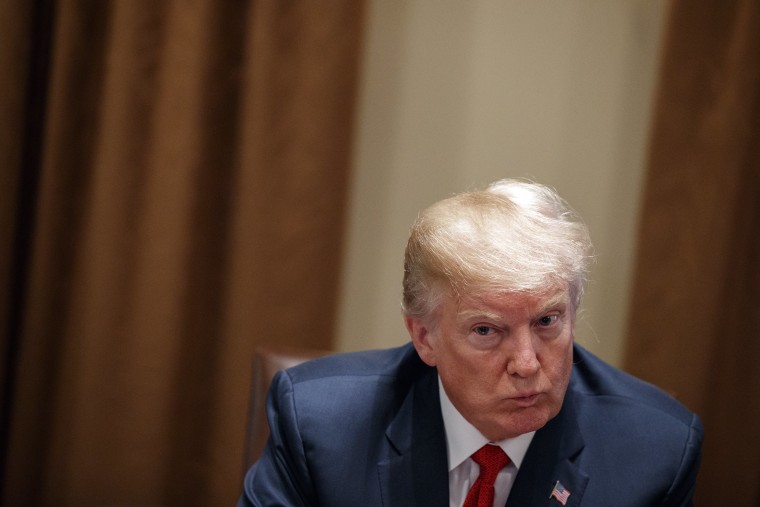The day after the Justice Department announced criminal indictments against 13 Russian operatives accused of attacking American elections, White House National Security Advisor H.R. McMaster spoke at a security conference in Munich, and freely acknowledged reality.
The evidence against Russia, the three-star general said, "is now really incontrovertible and available in the public domain."
Alas, McMaster's boss wasn't pleased. The White House national security advisor, Donald Trump declared on Saturday night, "forgot to say that the results of the 2016 election were not impacted or changed by the Russians."
Of course, McMaster didn't "forget" this point. He simply had no reason to repeat a claim with no basis in fact.
It's occasionally worth pausing to find the goalposts. When reports first surfaced of Russian intervention in the American elections, Trump and his team said there was no Russian meddling. Trump World then shifted and said they didn't communicate with Russians during the attack. When that was shown to be a lie, they changed their line again, saying there was no cooperation between Russia and the campaign.
Now that we know Russia did attack the elections, and took steps to help put Trump in power, and Team Trump was in communication with Russia during the attack, and top members of Trump's inner circle welcomed Moscow's intervention, the emphasis has shifted anew: the attack was ultimately inconsequential, the argument goes, because Russia's intervention didn't affect the outcome of the race.
In other words, the president and his team desperately want you to forget all those other, discredited talking points, and believe the foreign adversary's intelligence operation simply didn't matter in practical terms.
Trump is pushing the line. So is Vice President Mike Pence. So is White House Press Secretary Sarah Huckabee Sanders. Some members of Trump World have gone so far as to insist U.S. intelligence agencies have endorsed the talking point -- which isn't even close to being true.
But that's not the only reason you should be skeptical of the president's latest pitch.
Something Rachel said on the show on Friday night about Friday's indictments of Russian operatives stood out for me as especially noteworthy:
"What this indictment actually shows, if anything, was that this foreign operation wasn't some practical joke. This wasn't a crank call. This wasn't a lark."This was a Russian intelligence operation. This was a Russian intelligence at its most ambitious. This was expensive. In the indictment today, they say that the budget for this was more than a million dollars a month."It was expensive. It was extensive. It was well thought out. It was run by professionals and it was effective."
Now, in context, Rachel was making a point about the importance of Americans using the full force of the U.S. government to go after these guys and to protect us against operations like this, but I also think it relates to Trump World's newest argument.
A foreign adversary launched a sophisticated and well-funded intelligence operation against the United States. The operation included public events, advertising, rallies, p.r. stunts, outreach to domestic allies, and an aggressive social-media component.
There's no ambiguity as to why the foreign operatives were doing this. The Russians believed events, ads, rallies, stunts, and outreach would have a direct influence on how Americans voted.
Trump World wants you to believe the Russian efforts were a pointless failure. The 2016 presidential race was decided by 78,000 people across three states, but no matter, the argument goes, the Russian intelligence operation didn't sway the results in any way.
To bolster the claim, Republicans point to ... nothing. They've tried to say the intelligence agencies have reached this conclusion, but that's wrong. They've tried to say the claim was bolstered by Friday's indictment, but that wasn't true, either.
What they're left with is a highly implausible talking point, supported by no evidence, that no one should take seriously.
